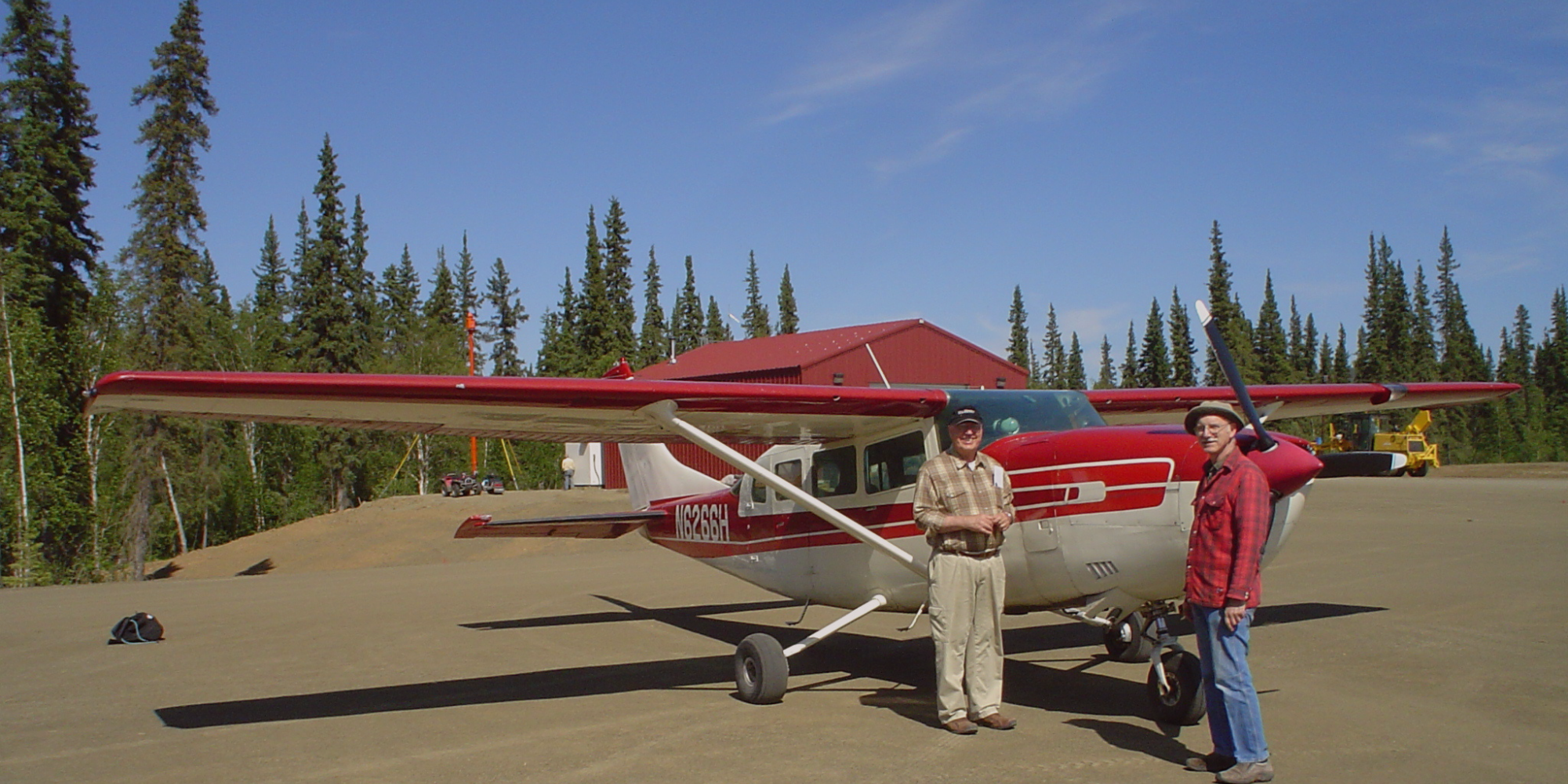Franciscan ministry in the Alaskan wilderness
Date Published: September 05, 2024
By Eileen Connelly, OSU
The Franciscans are known for their willingness to be one with the people with whom they serve, to treat them with compassion, dignity and respect for their culture, to celebrate with them in times of joy, be present in times of sorrow and hardship, to walk with them through the journey of life and faith.
The friars serving in Alaska’s interior — Brothers Bob Ruzicka, OFM, Justin Huber, OFM, and Thinh Van Tran, OFM — take this to heart, attesting to the incredible beauty of the region, the deep faith of the people, and the unique rewards and challenges of their ministry.
They primarily live and work among the Athabaskan Indian community, seeing to their sacramental and pastoral needs in six remote villages along the Yukon River, accessible only by air, boat or snowmobile, depending on the season. Brothers Bob and Justin live in Galena and Br. Thinh resides in Nulato.
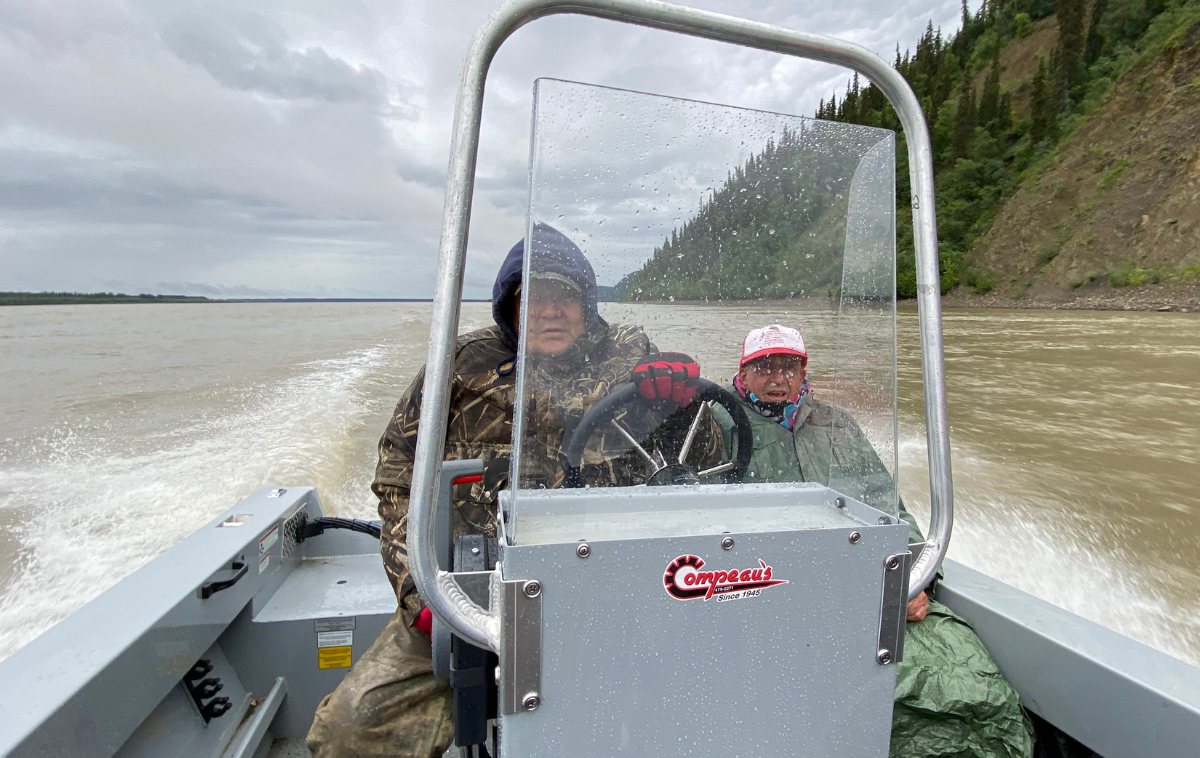
A boat trip from Nulato to Galena covers about 55 miles. In this photo, Br. Robert, on right, is bundled up to avoid the spray from the Yukon River. (Photo courtesy of Br. Justin Huber)
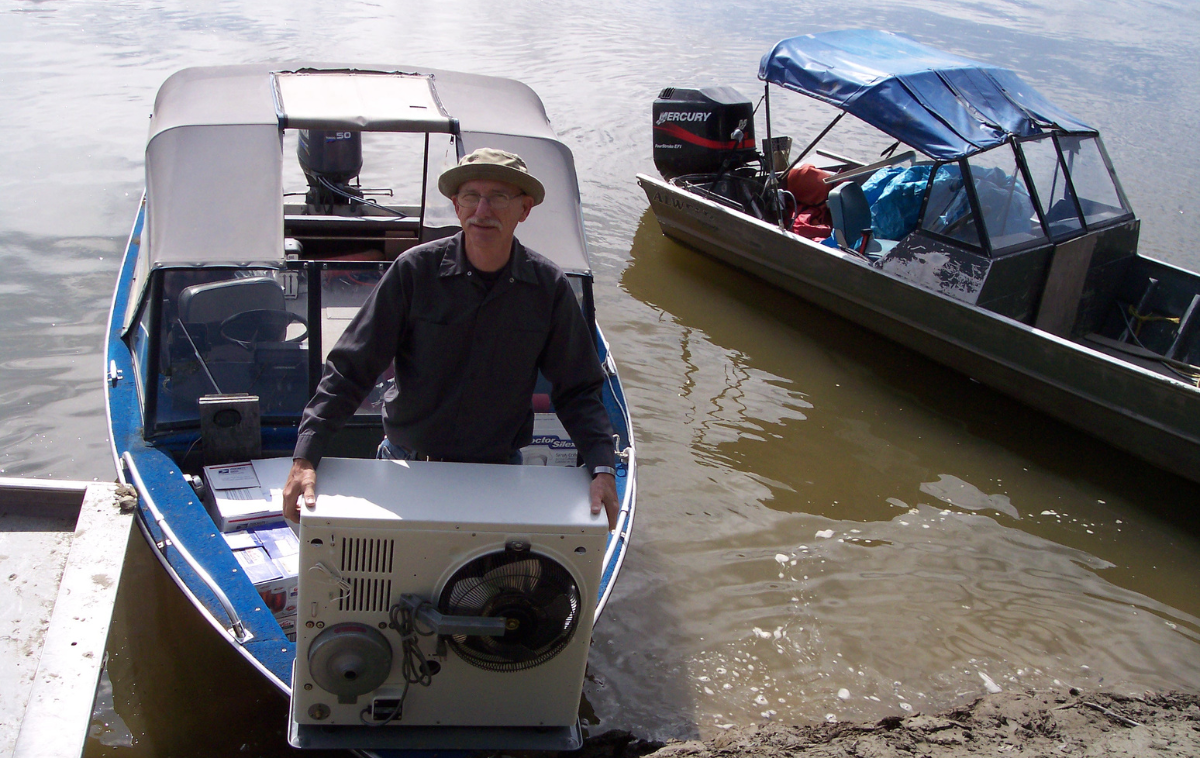
Ordering supplies can be a challenge in remote parts of Alaska. Here, Br. Justin transports a few items by boat. (Photo courtesy of Br. Justin)
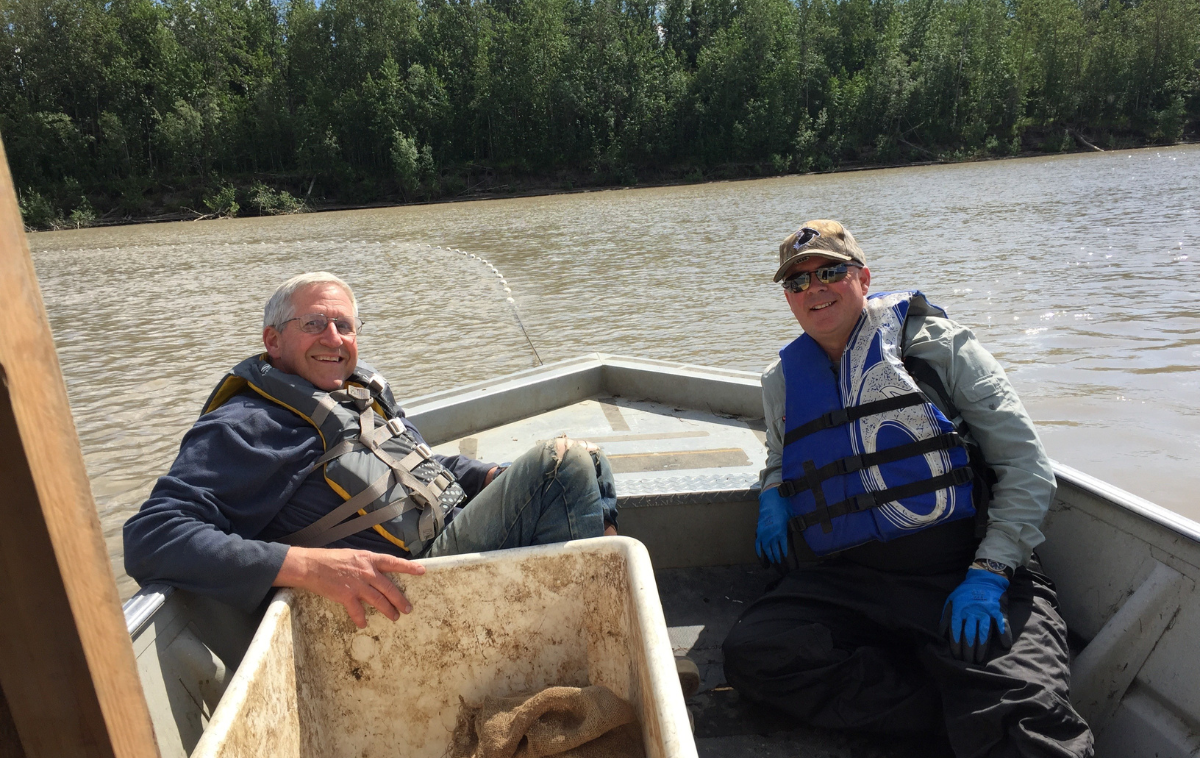
Sometimes visitors arrive by boat. Here, Br. Robert catches a ride with Chad Zielinski, former bishop of Fairbanks, Alaska, during a visit to Nulato in 2018. (Photo courtesy of Br. Justin Huber)
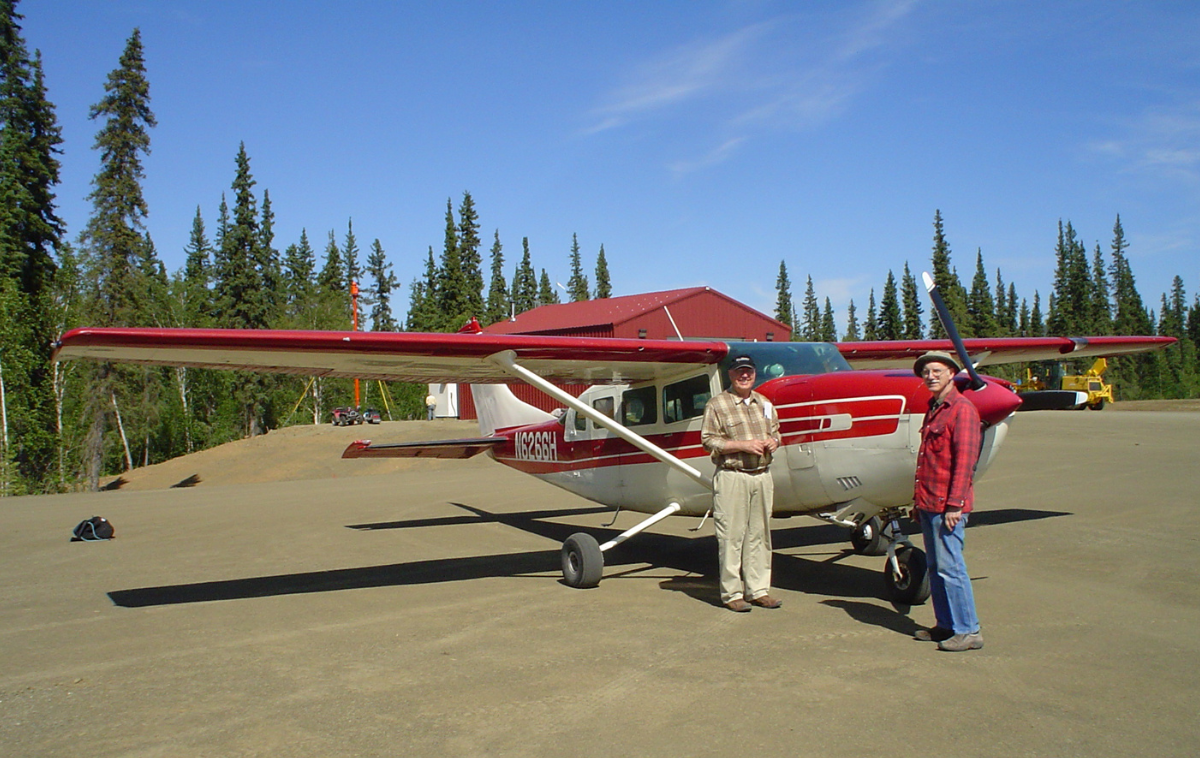
Some villages are only accessible by air during certain seasons. Here, Br. Justin and Fr. Dick Case, SJ, prepare for take off. (Photo courtesy of Br. Justin Huber)
Becoming one with the people
Br. Bob has been there the longest, since 1986, when he responded to a provincial call for assistance. “I’m a big city boy, born in St. Louis, and lived in Chicago and Cleveland, where I worked in an inner-city parish. When I first came to Alaska, I thought, ‘I’ve made a mistake,’ but I stayed because I made a commitment and took that seriously.
“It not just that you fall in love with people, but you become one with them,” he said. “They embrace you as family.”
Br. Bob stressed it is critical for anyone considering ministry there to be mindful that while the Catholic Church is 2,000 years old in many parts of the world, its history is much more recent in northern Alaska at just over 150 years. Those on mission to Alaska must respect that aspects of the culture are still rooted in ancient ways intertwined with the Catholic faith, he noted. Native parishioners may burn food to call upon the intercession of their ancestors, while also praying the rosary. Mothers have been known to put both a fishbone and a saint’s medal in their children’s pockets to protect them from danger.
“One thing that I needed to do was recognize that they already had a spiritual culture,” he explained. “God was here with the people before the missionaries and gave them a way to be one with the Creator. They embrace Christ; they embrace Catholicism. I’m here to listen to them, to walk with them, to invite them. You must have a heart for a new culture when you come here, a Franciscan heart. The people become part of us, and we become part of them.”
Br. Bob’s ministerial experience has included serving as parish administrator, coordinating ministry throughout villages served by the friars, providing catechesis for children and training newly assigned priests. “I’ve been blessed to be able to share some of their culture, their sense of God and the Church,” he said.
Br. Thinh also feels blessed by his time in Alaska. He ministered there during the summer while in formation. He was ordained to the priesthood in 2013, and returned to Alaska six years ago, drawn by a sense of adventure. He currently shares sacramental ministry in Nulato and Koyukuk with a priest from India.
“It’s been a good decision,” he said. “One thing about coming here is that you must be willing to do everything – fishing, splitting wood. There’s no one else to do it for you. The life and culture here is subsistent living. We don’t go to the grocery store to buy meat. You learn to live off the land. The sense of community among the people is very strong. They care very much for each other and help one another in any way they can.”
In addition to his priestly ministry, Br. Thinh has become known throughout the villages for mechanical skills. “People keep saying I’m the best mechanic. Everywhere I go, I help the people in the villages. I also have a vegetable garden that I share with the people.”

Living in Alaska means living off the land, according to Br. Thinh. In addition to his priestly ministry, Br. Thinh has become known throughout the villages for mechanical skills. (Photo courtesy of Br. Justin Huber)
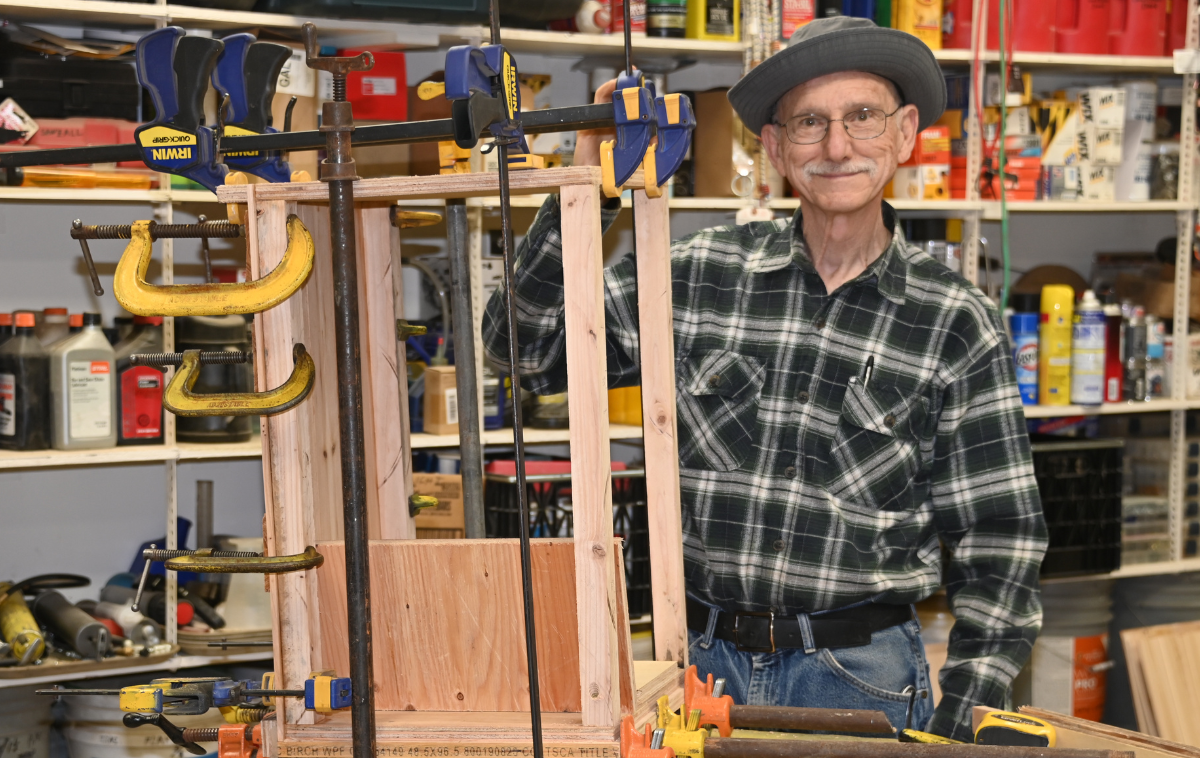
When you live in Alaska’s interior, you need to learn to adapt and get your hands dirty, according to Br. Justin. Here, he works on building three cabinets for a church. (Photo courtesy of Br. Justin Huber)
Br. Justin came to Alaska after serving as a missionary in remote communities in Africa, Texas and Tennessee. “I was looking for another place where I could use my talents,” he explained.
His ministry has included teaching baptism classes and training extraordinary ministers. Still, most of his time is spent in a hands-on ministry of service to the villagers, whether Catholic or not. This ranges from assisting with repairing boat and snowmobile engines to home maintenance and fixing a neighbor’s oil heater. Br. Justin recently helped a village elder install a new water pump and tank in his home.
“It’s just a matter of using your talents,” he said humbly. “You have to learn to adapt and be willing to get your hands dirty.
“We’re here to walk with the people on their journey. It takes time to build relationships,” he added. “You just have to listen to the people and pray with them. You can learn more from them then they can from you."
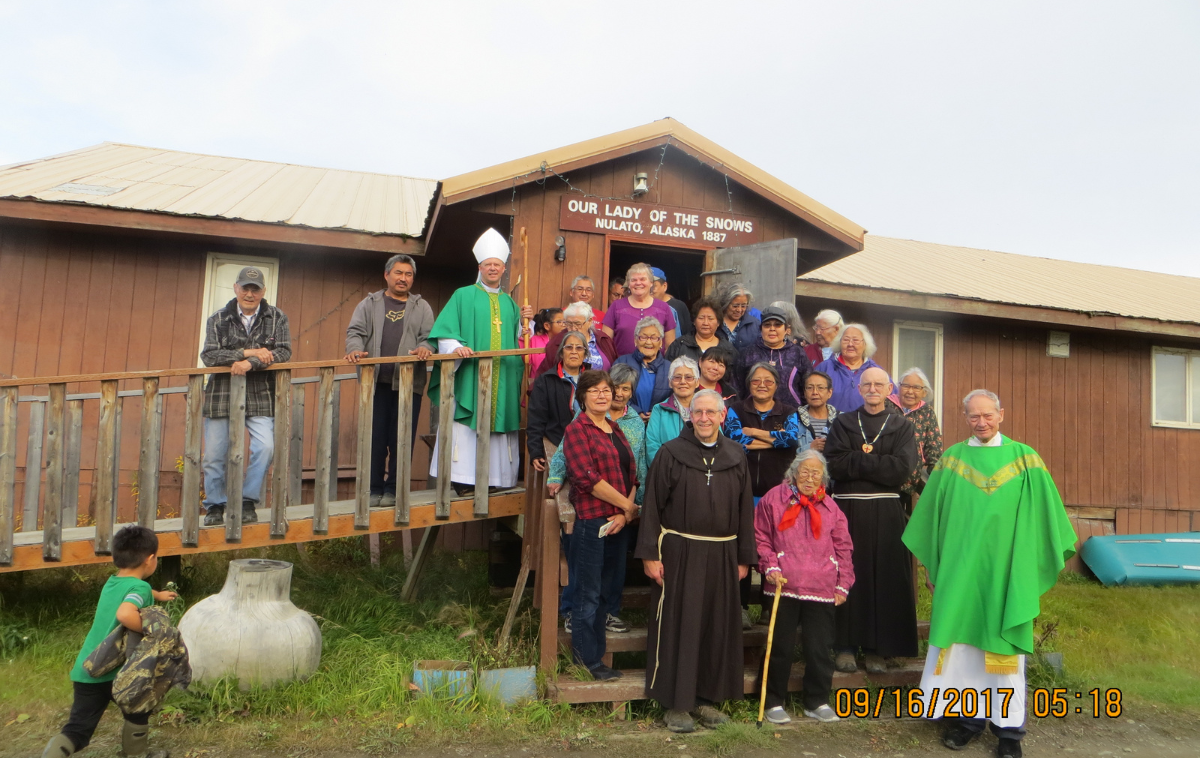
Founded in 1887, Our Lady of the Snows Parish in Nulato, Alaska, continues to serve the surrounding community. This photo was taken in 2017 during the area’s regional meeting. (Photo courtesy of Br. Justin Huber)
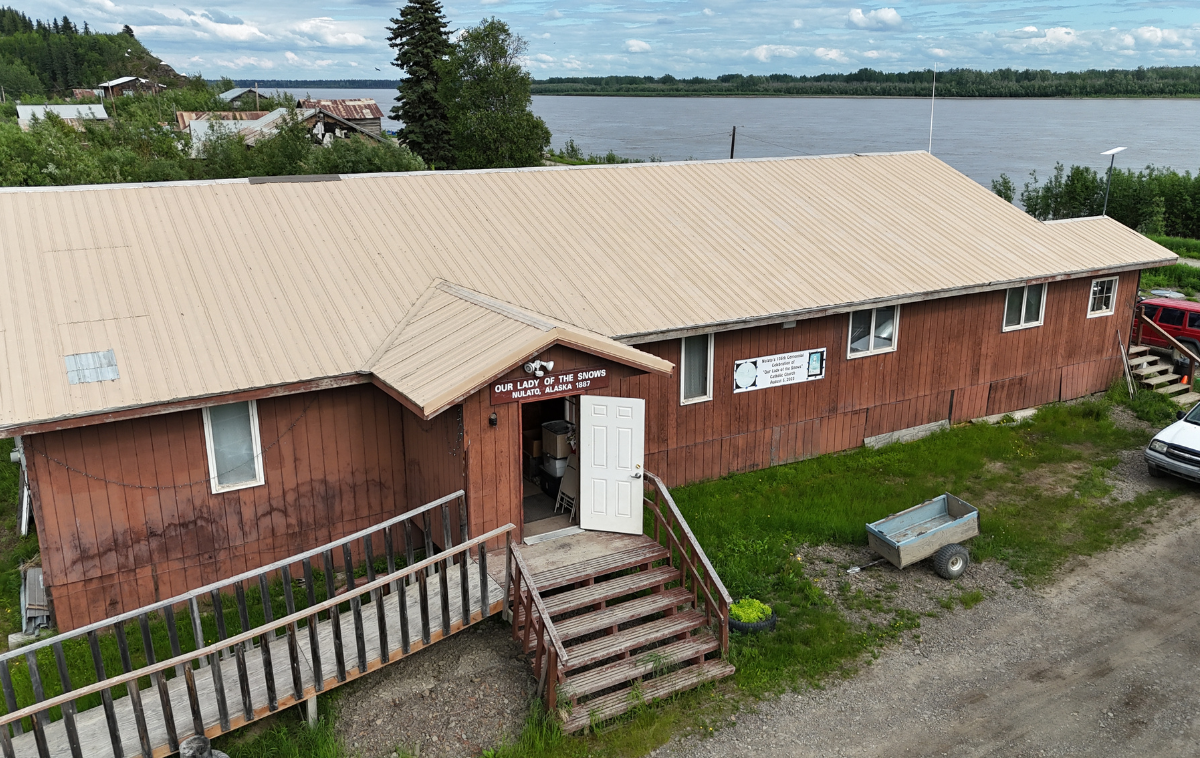
Our Lady of the Snows Church sits near the banks of the Yukon River. (Photo courtesy of Br. Justin Huber)
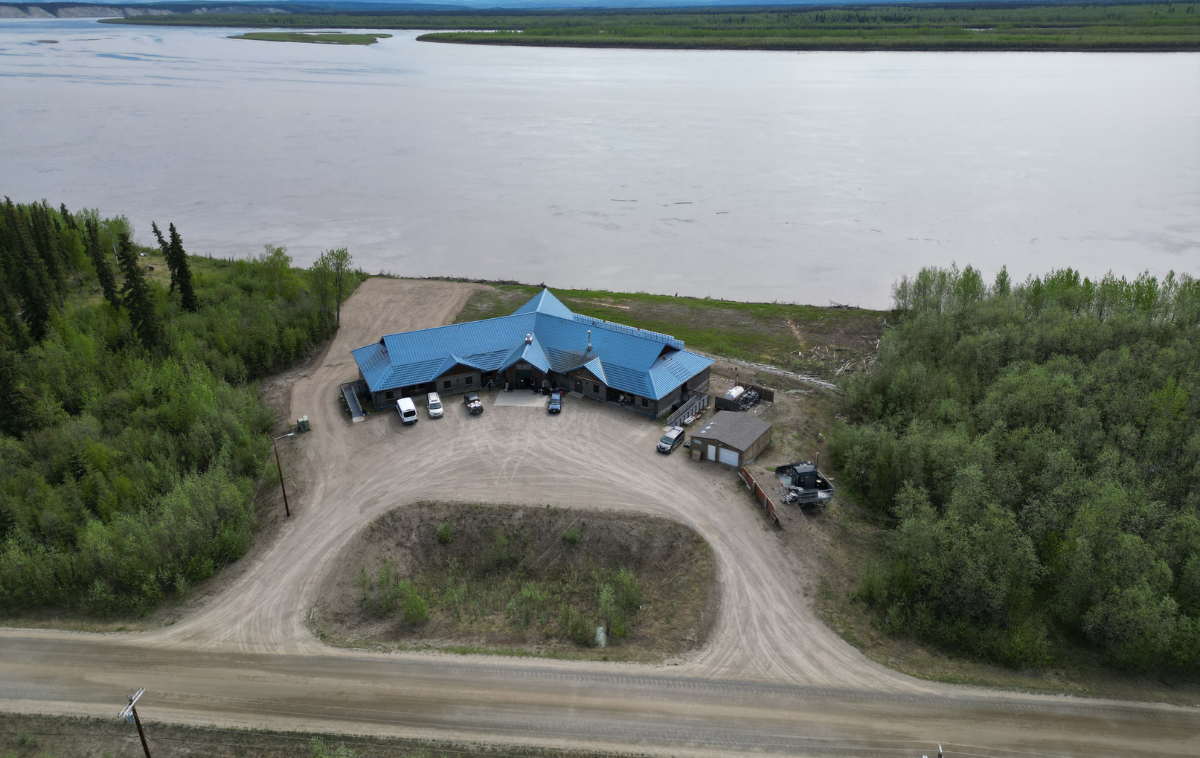
Further down the Yukon is St. John Church in Galena. (Photo courtesy of Br. Justin Huber)
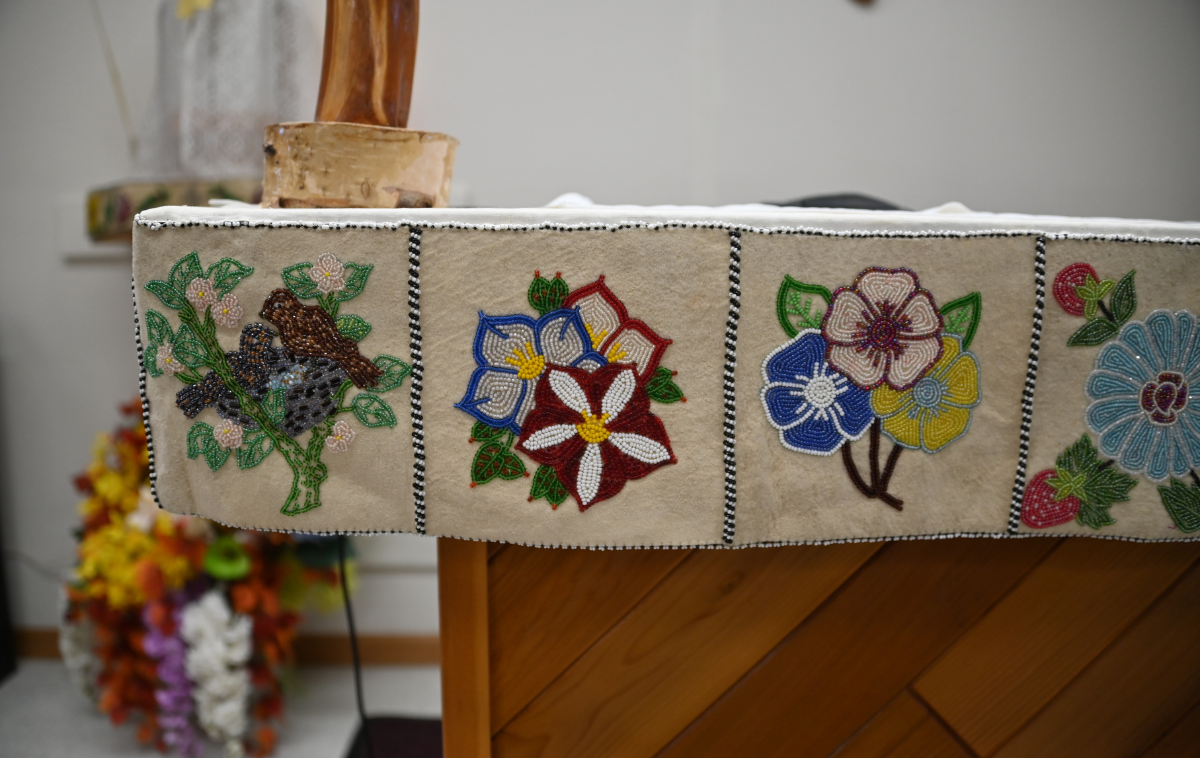
Beautiful beadwork decorates the altar at St. John Church in Galena. (Photo courtesy of Br. Justin Huber)
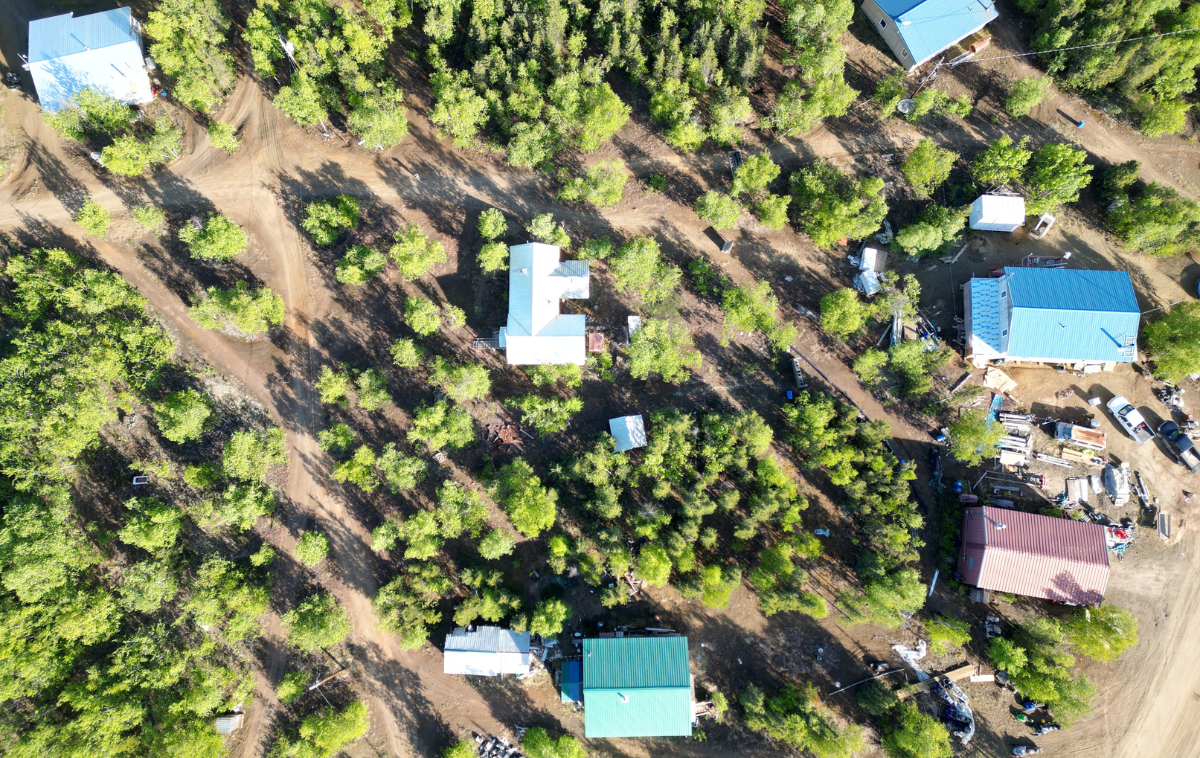
St. Francis Regis Church in Huslia is surrounded by dirt roads and lush vegetation. (Photo courtesy of Br. Justin Huber)
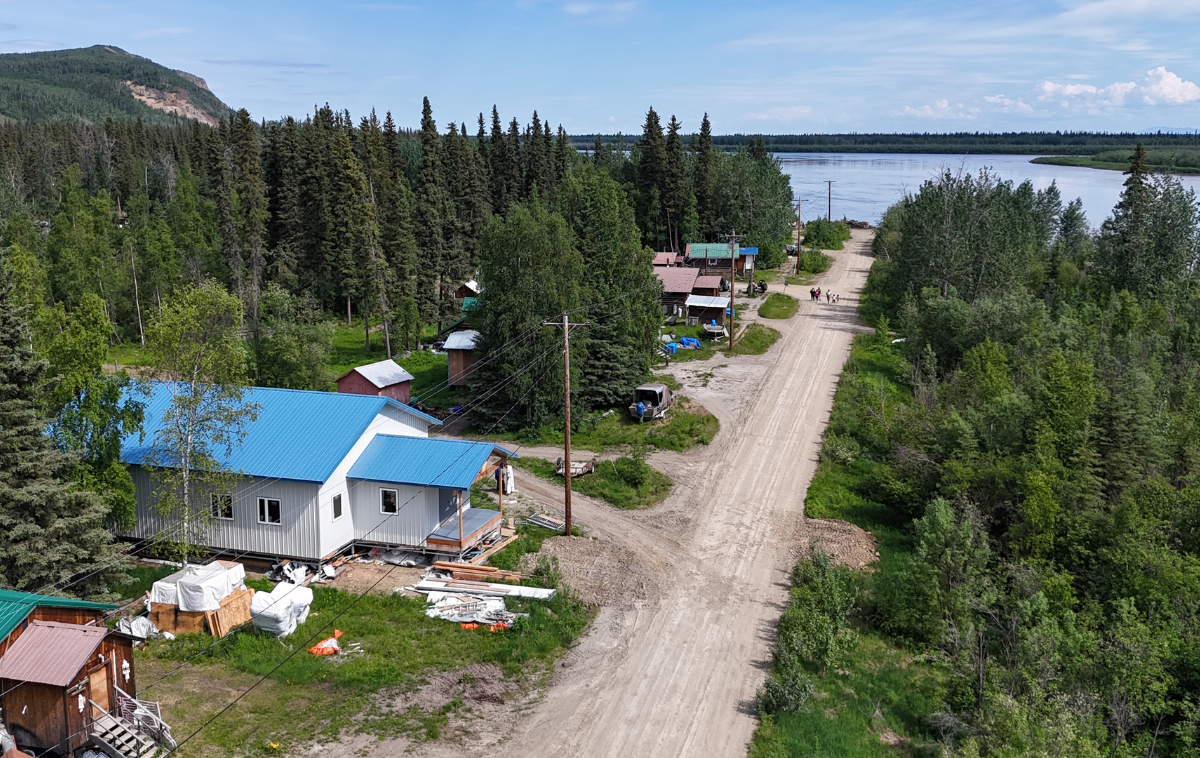
St. Patrick Parish in Koyukuk is getting a new church building. (Photo courtesy of Br. Justin Huber)
Embracing the challenges and joys
To truly walk with the people, the friars emphasize that it is essential to understand the reality of life in Alaska’s interior. Far removed from the conveniences of the lower 48 states, supplies can often be hard to come by and are expensive. The isolation and long, dark, bitterly cold winters can be an issue for some. Poverty, unemployment, drug and alcohol abuse, and high suicide rates plague many villages. Br. Thinh admits to struggling with this when he first arrived.
“It was very hard. My first year here, it was funeral after funeral in one village,” he said.
Amid harsh conditions and tragedy, the people support one another. “When they come together, there is hope,” Br. Trinh said, noting the hope and healing their faith and the presence of the friars also brings.
“We get close to the people in the villages and their loss is our loss, so we share in their suffering, but also in their hope,” Br. Bob said. “That’s why the people need us here supporting them in their lives and in their faith.”
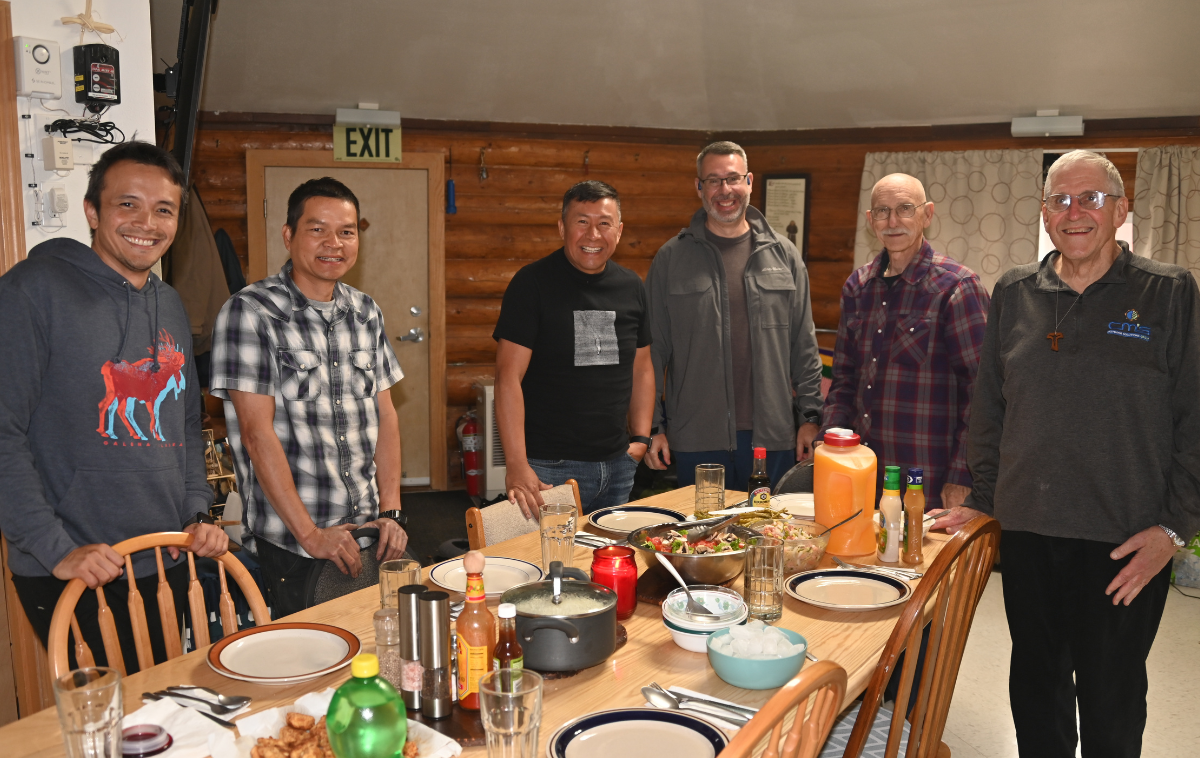
Members of the Provincial Council recently visited the fraternity in Alaska. From left to right: Brothers Sam Nasada, Thinh, Rommel Perez Flores, Erick López, Justin and Robert. (Photo courtesy of Br. Justin Huber)
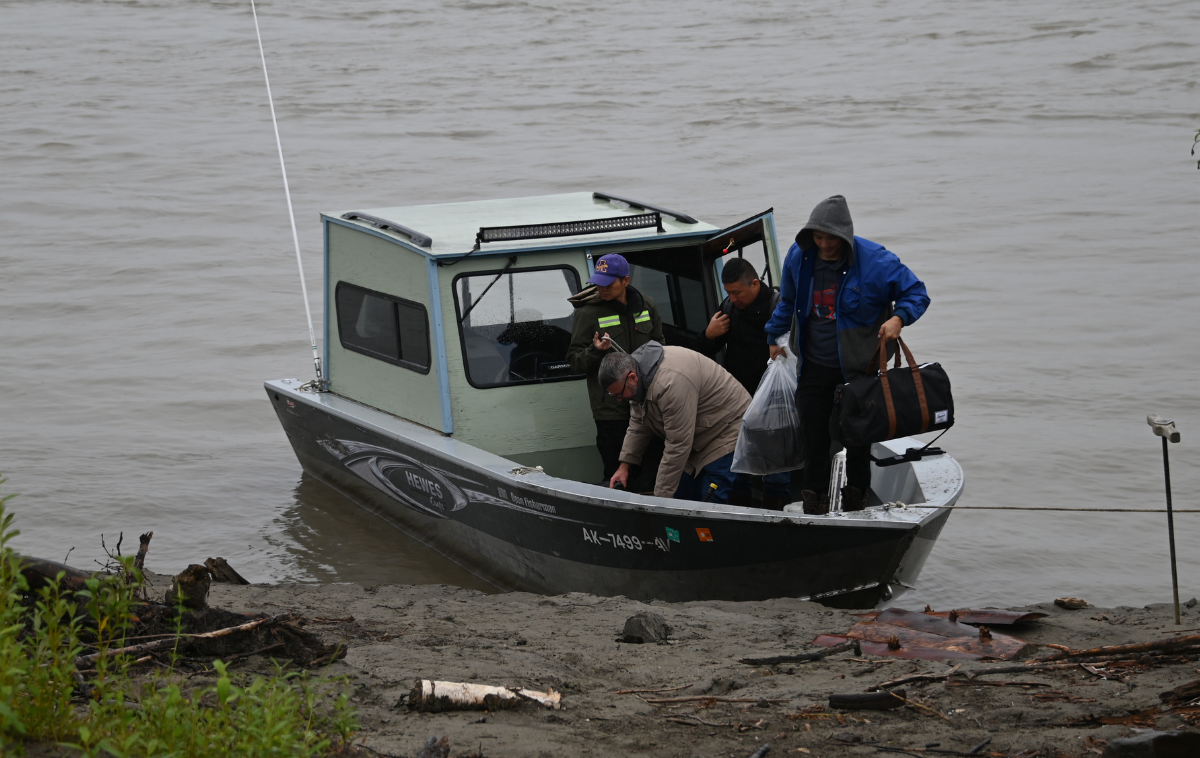
Brothers Thinh, Sam, Erick and Rommel take the boat from Galena to Nulato. (Photo courtesy of Br. Justin Huber)
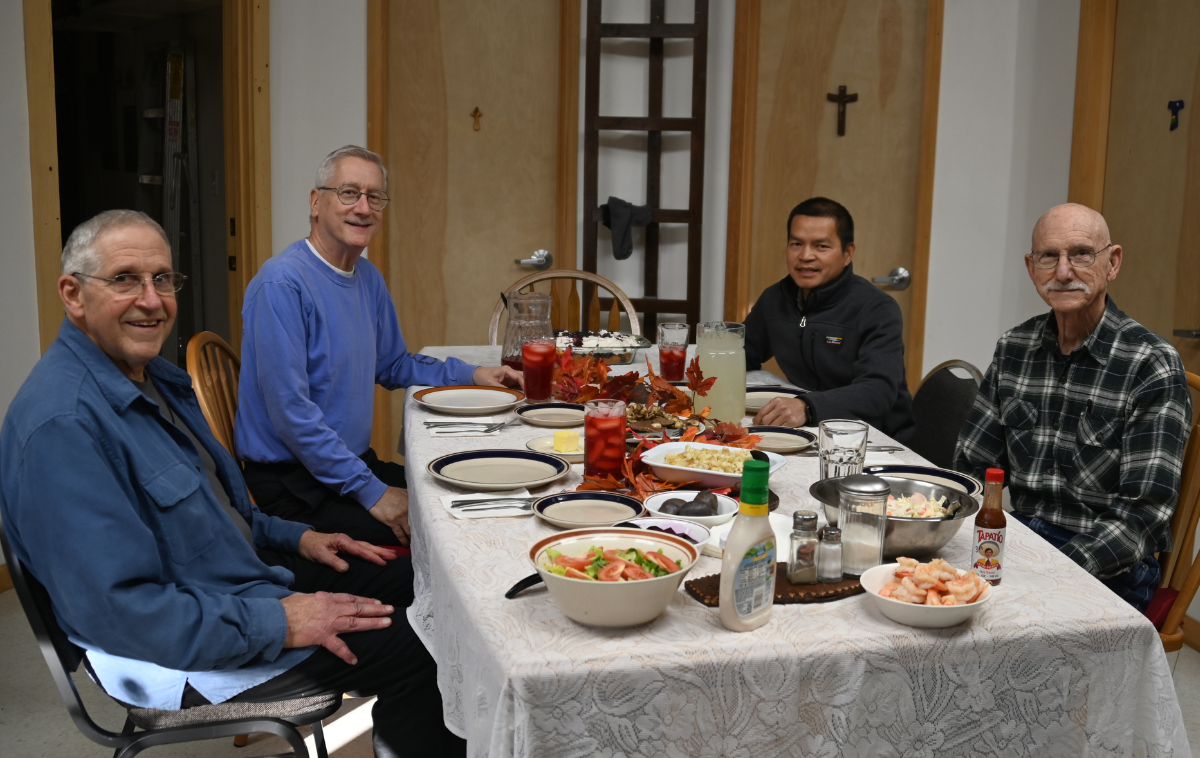
Other friars are always welcome to visit Alaska. Here, Brothers Robert, Thinh and Justin welcome Br. John Dombrowski (upper left) as their guest for dinner on the feast of St. Francis in 2023. (Photo courtesy of Br. Justin Huber)
Franciscan values at work
The brothers firmly believe that the relevance and success of their ministry is rooted in the alignment between traditional native values and those of St. Francis – recognizing the intrinsic goodness and interdependence of all God’s creation and living a simple life dedicated to serving others.
“Francis walked with the poor. He walked with faith and was out among the people in the villages,” Br. Bob said. “The people in the villages here are the first teachers of faith to their children, but they need that extra spiritual guidance that can help build their faith. There is very much an opportunity for renewal here, for other brothers to come and be with the people as Francis did in his time.”
Provincial Councilor Br. Sam Nasada, OFM, who visited Alaska in early July with fellow Councilors Brothers Rommel Perez Flores, OFM, and Erick López, OFM, witnessed “how close the friars are to the people. Their availability and presence are meaningful,” he said. “As Franciscans, we’re called to live in solidarity with people on the margins. That is happening in Alaska. The friars live among the people and respect their culture. The aspect of living within a particular culture without trying to impose ours on them is very much a Franciscan value.”
Br. Sam encourages his brothers to at least visit the region and said Bishop Steven J. Maekawa, OP, of the Diocese of Fairbanks, has generously offered to help with the cost for any interested friars.
“Just ‘come and see,’ as Jesus says. That’s my invitation,” said Br. Sam. “It doesn’t have to be a lifetime commitment. Just visit and experience the ministries of the friars, the beauty of creation and the faith of the people."

